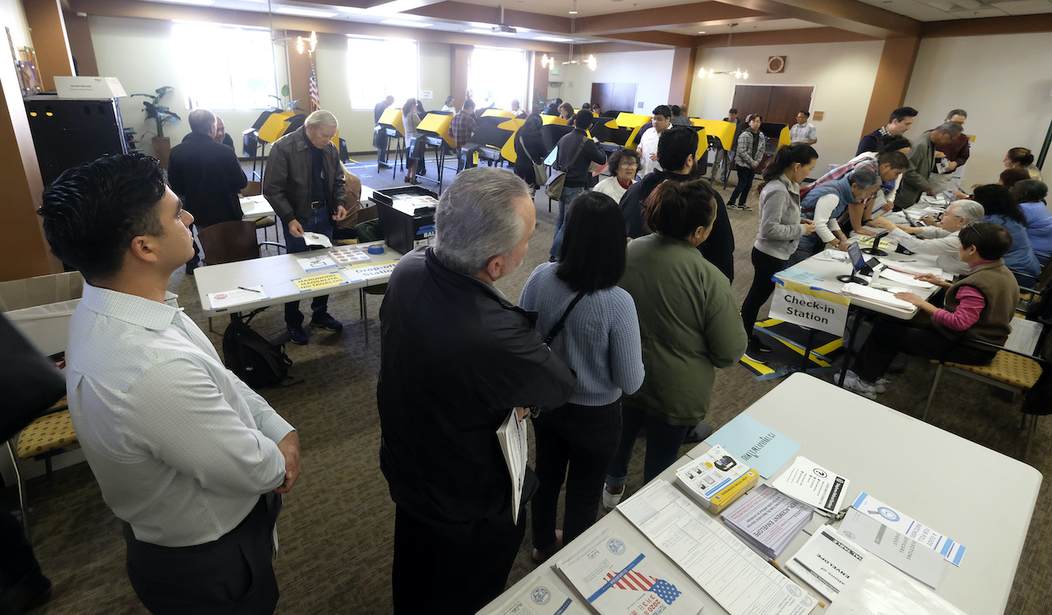The key to remaining a free, self-governing people through representative government is regular elections.
What follows is the rather obvious challenge of how to hold elections during a global pandemic. How can we safely hold an election when it isn’t wise or safe to crowd into a room? And how can we have a representative republic without an election? It’s quite the conundrum.
The answer seems apparent: allow everyone who is entitled to vote cast their ballot by mail.
Whoa! Hold it, you say – mail ballots are not safe or secure!
Well, that depends. If you were to authorize an all-mail ballot election with the same guidelines as Colorado’s from 2013, you’d be right. On the other hand, you can learn from our mistakes and have a safe and secure all-mail election – if you plan ahead.
Let’s talk about playing with fire. On the farm, we view a flame as something of a fickle friend: it can be either an ally or an enemy. When a fire’s heat is harnessed it can be used to weld metal together to make scraps useful, or fix a damaged tool. But when a wildfire rages across the landscape it can be totally devastating. A ballot is like fire: either completely empowering or totally destructive. The ballot is empowering if and only if every person who wields one is legally entitled to it and, importantly, if they only get one. A ballot is destructive when used illegally – or if there is a plausible belief that it will be used unlawfully, which could call the validity of an entire election into question.
Cleaning up the voter file is a must to ensure the legitimacy of a mail ballot election. I can think of little more dangerous to the security of an election than tens of thousands of ballots left lying around for anyone to pick up. Aside from keeping the voter file up-to-date, there are two additional ways to ensure no activists (of any persuasion) can collect stray ballots and attempt to vote them.
Recommended
First, make ballot harvesting illegal. Except in rare and thoughtfully defined circumstances, no one should be allowed to turn in another person’s ballot – and no one should ever be allowed to turn in hundreds of ballots. Ballot harvesting is legal in both Colorado and California, and while the practice is theoretically limited to no more than ten ballots per person in Colorado, the loopholes on the “limit” are so large you could drive multiple post office trucks through them.
The second measure to safeguard the integrity of an all-mail election is to have a tight signature verification process. My county is home to only a few thousand voters, with a highly competent and trusted Clerk to oversee the elections. I have observed the in-person signature verification process with election judges from both parties watching. I trust this method. However, most of the large counties in Colorado use optical scanners to initially verify signatures – read my tweet storm addressing the entire issue. My concern with AI scanning is that any person with access to the scanner can adjust the acceptance rate such that nearly every signature passes “inspect.” What’s to stop someone with a desire to see stray ballots counted from doing just that? This fear of mine was justified on Twitter by an expert on early and mail-in voting. I have no doubt that the technology works, I just want partisan election judges regularly verifying that the machine’s accept/reject rate is set at its most discerning level. We can let real election judges make the call on rejected ballots.
Regarding voter identification, a valid, government-issued photo ID is a must. You cannot have a trusted voter file if individuals are allowed to register and vote with an item as easy to fraudulently create as a utility bill. This problem is only amplified by a longer voting window: not only can you use a fake Verizon bill as identification in Colorado, but since Election Day has now morphed into Election Month you can register and vote fraudulently several times a day for three weeks. Requiring a photo ID to register and vote stops this type of fraud in its tracks.
If, for some reason, the photo ID address doesn’t match the address for registration, you should still let the person vote. Everyone deserves the right to vote – once. Mark it as provisional and verify the ballot’s legitimacy later. And don’t be like Colorado: do not let people vote in the district in which they intend to live. I mean, I intend to win the PowerBall, but you shouldn’t let me move into the five-million-dollar house until I actually pay you.
Finally, if you decide as a state to take this step into all-mail ballot elections, let me suggest that you immediately figure out who is going to print your ballots. Finding a printer in September might be harder than finding a CoVid-19 test was in February.
Greg Brophy is a former state senator in Colorado, a farmer and a political consultant.























Join the conversation as a VIP Member